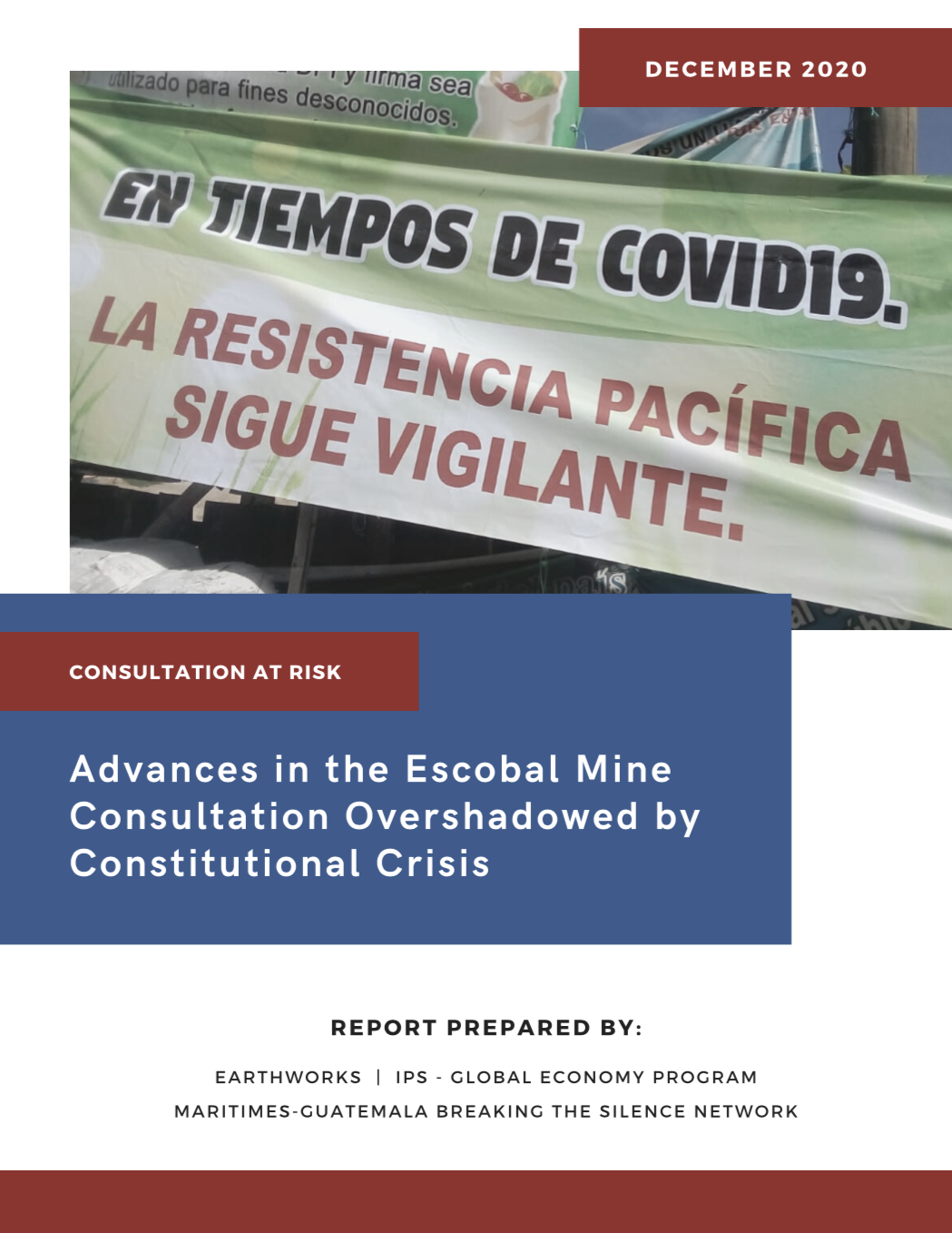From the Summary:
For more than two years, the Guatemalan Ministry of Energy and Mines (MEM) refused to
accredit the 59 representatives elected by the Xinka to participate in a consultation over Pan American Silver’s controversial Escobal mine. In September 2018, the Constitutional Court ruled that the state violated Xinka people’s Indigenous rights when it failed to consult them prior to the start of mine operations. The Court suspended the project and ordered MEM to conduct a consultation with affected Xinka communities according to international standards. However, this two-year delay in accepting Xinka representatives – in violation of the court ruling – effectively halted all progress. Through persistent community-led action and a focused international advocacy campaign, the Xinka succeeded in pressuring MEM in October 2020 to finally concede, allowing for the stalled consultation to begin moving forward.
Yet the current political crisis in Guatemala and the weakening of judicial and human rights bodies threaten to derail the fledgling consultation process. Ongoing and widespread protests over a budget bill that benefits elite interests at the expense of the poor majority, coupled with accusations of corruption in the handling of COVID-19 aid, threaten the future of President Alejandro Giammattei’s government. It is uncertain what implications this could have for recent agreements reached with MEM.
Perhaps even more troubling is the undermining of judicial independence and impartiality within the Supreme Court of Justice and the Constitutional Court. The latter, Guatemala’s highest judicial body, has come under attack following rulings that are unpopular with the country’s economic elite — including the suspension of two transnational mining operations for lack of state consultation with Indigenous Maya people.
Download the Report (pdf)
For More Information
- Earthblog: Xinka Parliament Announces Consultation Breakthrough in Mine Consultation Process – Oct 27 2020
- Earthblog: Tough questions and no answers from Pan American Silver – May 8 2020
- Report: Guatemalan government discriminates against Xinka, puts Escobal mine consultation at risk – Sep 12 2019



